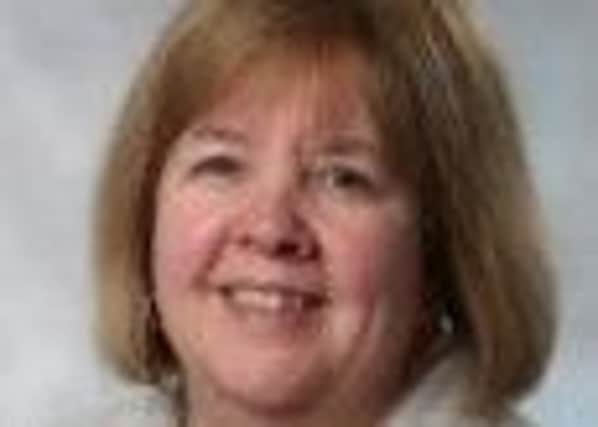Mary Mulligan: Real people benefit directly from the difference your support can make to their lives


After years of living off the land, and with some support from partner organisations like Christian Aid, Yolanta has learned how to get the most out of the ground under her feet. But a bountiful harvest can bring its own difficulties. Yolanta says: “At times we harvest a lot of crop but make a lot loss due to damages.”
Yolanta’s story will not be unfamiliar to many farmers in the UK. A good harvest requires knowledge, storage and good links to local markets.
Advertisement
Hide AdAdvertisement
Hide AdFor more than 70 years, Christian Aid has been supporting a range of people to make the best use of their skills in 37 countries around the world. So, we have brought groups of people together in an exciting scheme which we call Community Partnership.
Community Partnerships offer groups of supporters – whether that be businesses, schools or churches – the opportunity to support innovative and life-changing projects.
You’re connected with a real community of real people whom you can get to know as you fundraise for the project. You’ll get detailed information about the country and the project, but more importantly you’ll get to know the people involved.
We’ll send you updates on how the project is going and stories of people whose lives are being transformed through the work of our partners, so that you can see the difference that your support is making as the project develops.
For people across Scotland who are looking for ways to help those who live with injustice and poverty, Christian Aid’s Community Partnership scheme is one way we can make a real difference. Many churches in Scotland have supported Community Partnerships with projects providing the practical means to make a big impact on an individual’s life and help tackle the root causes of poverty.
There are currently two Community Partnerships that organisations in Scotland can support. The first programme is in Ghana where the Growing Economic Opportunities for Sustainable Development project is offering support particularly to young people.
Unemployment among young people in Ghana is exceedingly high, approaching 50 per cent, and changes to traditional work practises such as fishing, mean job opportunities are becoming ever more scarce. It is vital that young people, especially women, are given sustainable job opportunities and that the flow of young talent going abroad is stemmed.
This programme offers young people support, skills and financial capabilities to start and grow a business or access employment. This will include vocational training and work experience; teaching business skills; advice on how to build a business and skills and techniques to diversify from traditional work. The programme will target young women and people with disabilities who currently have few opportunities to start a business.
Advertisement
Hide AdAdvertisement
Hide AdOne of the business partners involved in this project is the Ghanaian Institute of Welding who will provide training, equipment and accreditation in welding skills. Already five master craftsmen, five women welders and 28 students have completed International Institute of Welding modules filling a big skills gap in the market.
In terms of fundraising, the European Union is match funding this project 1:3 so a donation of £5,000 will become a staggering £20,000.
The second programme we have operates in Zambia. The majority of farms in Zambia are small-holdings, where women do most of the work but are often not fairly rewarded for their efforts. Women are viewed as inexperienced and are less-trusted in the market-place, which results in them receiving a low and irregular income.
The specific Community Partnership project is known as the Market Garden project. This initiative will respond to specific needs by introducing measures such as solar charged or drip irrigation; developing local co-operatives and testing new crops or improved farming practices.
Even though this programme is still in the early stages, already women are coming forward to say how it is benefitting them. Women like Rosemary Mumba Mweemba. “This project will help us to learn how to use money properly because sometimes we have money but do not know how to put it to good use. It will also help us with better farming methods such as correct use and application of fertilisers.”
This project is run alongside a larger one, funded by the Scottish Government through the International Development Fund. Without their support these communities in Zambia will continue to struggle, unable to realise the bounties of their harvests.
Together we grow stronger, and by standing shoulder to shoulder with communities around the world, we have the opportunity to help end poverty once and for all.
For more information please go to https://www.christianaid.org.uk/community-partnerships
Mary Mulligan, Churches Development Officer for Christian Aid Scotland